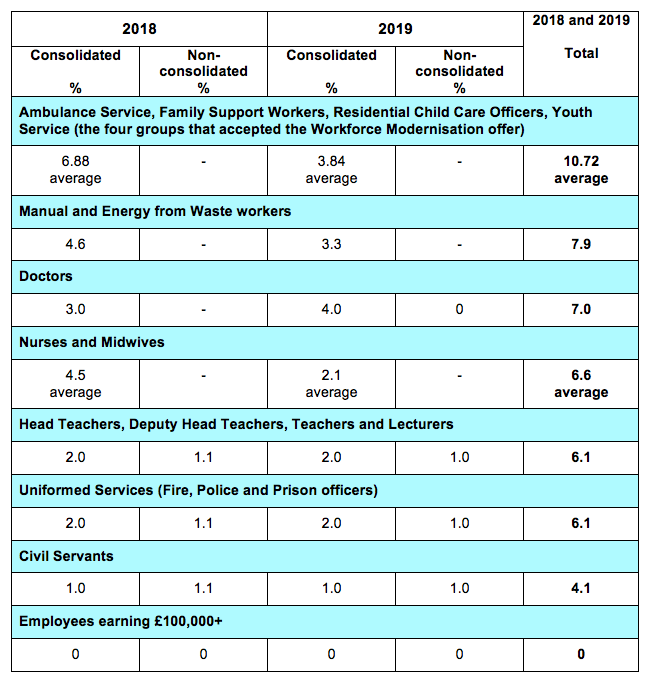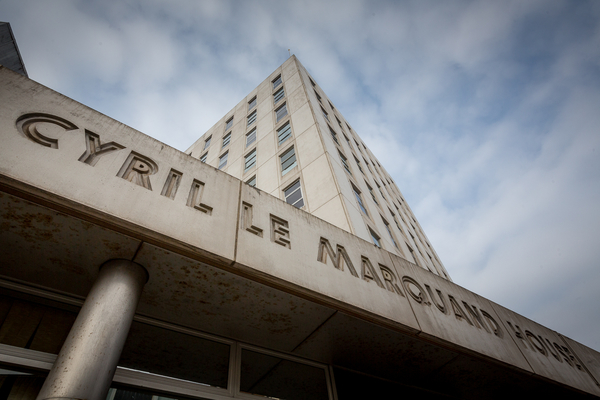

The government has misled public sector workers over the amount their pay will go up under a proposed salary rise, a politician has claimed.
The concerns were voiced by Deputy Rob Ward, as he launched a challenge to the States Employment Board (SEB) to justify their "convoluted and complicated" pay proposals, savings made from restructuring and the spate of “expensive consultants” being hired in an open letter.
His questions came in response to a controversial pay deal put to States workers earlier this month – branded the “most [the government] can afford” – following months of fraught negotiations with unions who claimed that public sector employees were not being paid fairly for their work.
While the four groups set to receive the most from the deal – Ambulance Service, Family Support Workers, Residential Child Care Officers, and the Youth Service – have accepted it, civil service unions remain unhappy because the proposed rises don’t keep pace with rises in the cost of living on the island.
Now Deputy Ward has launched a fresh attack on the proposals, suggesting that workers may have even been misled over exactly what they were getting.

Pictured: Table showing the latest pay deal being offered to States workers.
He explained that figures provided by the States to the public and media did not paint an accurate picture, as they gave a total percentage rise over two years, despite the fact that it was a mix of one-off lump sum payments and recurring rises.
So while teachers, for example, were said to get a 6.1% rise, the reality is that beyond 2019 their pay will only go up by 4% - a figure behind inflation levels.
"Therefore, to suggest an overall 6.1% increase over the two-year period is inaccurate. This issue can be repeated for all pay groups (uniformed services and civil servants),” Deputy Rob Ward said.
But even those getting a permanent rise, such as manual workers, were facing a different risk.

Pictured: Loss of other payments could mean some workers are worse off under the new pay deal.
The former teacher says that the areas of pay rise make no reference to any changes in terms and conditions. He said that even if the headline figure increases, workers could find themselves "no better off, or possibly worse off" due to the loss of other payments, such as shift payments for manual workers.
Deputy Ward is also concerned that the pay increases have been funded through what he calls a "regrading of staff."
"Could it be that a member of staff is downgraded, receives a pay increase on the lower grade that only maintains previous pay, means lower pay, or leads to a smaller increase in real terms pay than headline figures suggest?" he wrote in his open letter.
Overall, the Reform Jersey Deputy says the pay offer lacks clarity, which he described as disappointing. He says he has written to the SEB in a bid to get figures that are genuinely reflective of what is actually going to happen to workers.

Pictured: Deputy Ward is wondering whether money allocated for workers' pay has been used to fund the restructuring of the States department and the recruitment of senior posts.
He wrote: "An average increase is given. It is not clear how this was calculated. For example, if only a few staff received higher pay increases it may skew the figure. Therefore, creating a picture of pay increases that is not reflective of the majority of workers."
Deputy Ward also wants the SEB to clearly identify what budget was available for pay and how much had been set aside throughout the Medium Term Financial Plan (MTFP). He is concerned that money allocated for workers' pay might have been used somewhere else.
He wrote: "Given previous pay freezes, non consolidated and well below RPI imposed pay offers, what happened to these monies? Have monies been reallocated to pay for restructuring of the States department and recruitment of senior posts? If so, any limitation of available funds was part of a decision made by the leadership of the states and SEB. A political decision to limit funds."
Deputy Ward described the pay offer as “convoluted and complicated”, adding that it did not reflect what is happening to the workforce. "If you speak to people working now, nurses, teachers or any workers, they will tell you that they are not seeing what the States describe. It is not a genuine pay award. I have submitted questions to the SEB; they are the ones that need to be addressed more accurately if we want to have a sensible and intelligent debate."
Pictured: Deputy Ward's open letter to the States (click to read letter in full).
"How much money is actually being spent on the pay increase?" he questioned. "The figures are not truly reflecting what is happening."
One of the island's main civil service unions, Prospect, is currently holding a ballot on the issue, which will run until mid-September. If the deal is rejected, strike action may follow.
For the deputy, however, the even bigger issue linked to the pay rise is that of the direction taken by the public sector in general during its largest ever shake-up. "Public service is affecting everyone," he told Express.
"How far could States Members see the public sector go before we do something? We can't let it erode away."
Comments
Comments on this story express the views of the commentator only, not Bailiwick Publishing. We are unable to guarantee the accuracy of any of those comments.